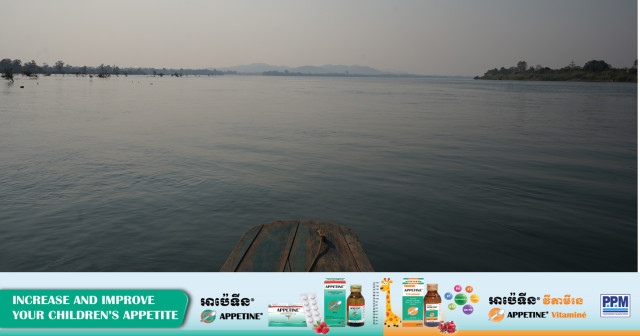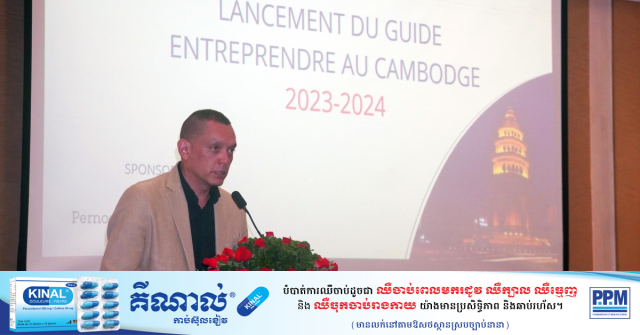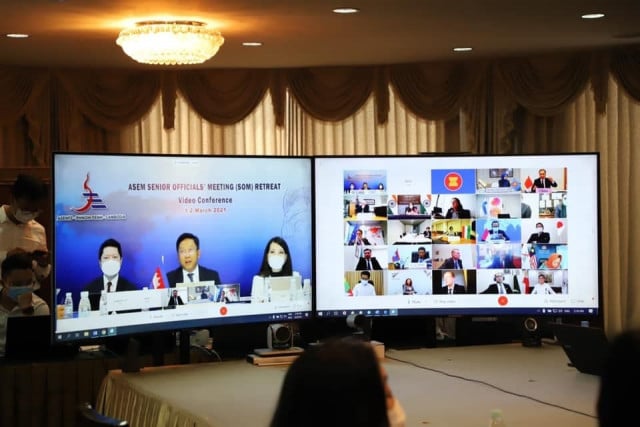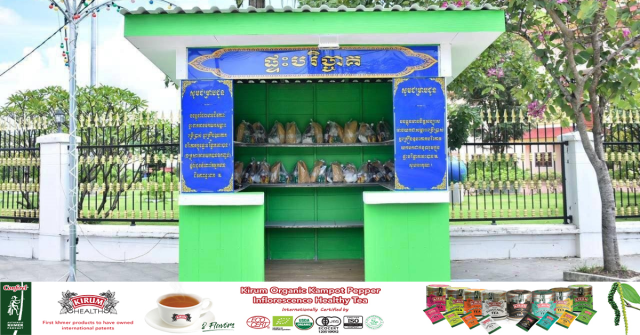The Environment Ministry Is Set on Plastic Waste Cleanup in Rivers

- By Rin Ousa
- February 25, 2024 6:00 PM
PHNOM PENH — Minister of Environment Eang Sophalleth said on Feb. 21 that increasing efforts are being made for plastic waste cleanup in waterways.
This is in accordance with the country’s “Circular Strategy on Environment 2023-2028”, which involves prioritizing clean, green and sustainable when it comes to the environment in the country, he said.
Sophalleth mentioned this during the courtesy call of Alan Bowman, director general of Southeast Asia and Oceania for Global Affairs of Canada, which took place at the Ministry of Environment, ministry’s spokesperson Khvay Atitya said on Feb. 23.
The issue was raised when Bowman, after mentioning that the country’s rapid development had truly been impressive over the last decades, asked about the country’s campaign to reduce plastic waste on land and in rivers, Atitya said.
The meeting was an example of the solidarity between developed countries and developing countries in ASEAN, which aims to contribute to responding to climate change through policies highlighting clean, green and sustainable, he said.
With the crucial importance of fish and fisheries for people’s livelihood in Southeast Asia, Cambodia and Laos will be signing a Memorandum of Understanding on plastic waste cleanup in the Mekong River, according to the ministry’s official Facebook page.
As Atitya pointed out on Feb. 23, the ministry is paying close attention to plastic pollution in waterways and especially in the Tonle Sap Lake and River, and in the Mekong River.
“The ministry prioritizes the Tonle Sap as it is one of the biggest sources of fish supply for people’s livelihood,” Atitya said. “The ministry put its efforts on preventing plastic waste from being thrown into the Tonle Sap lake.”
“In addition to the Tonle Sap lake, as the Mekong River flows through six Asian countries including China, Myanmar, Thailand, Laos, Cambodia and Vietnam, these countries are joining hands to prevent plastic waste pollution as part of combatting climate change.
“On March 3, the ministry will clean up plastic waste along the river, and is calling for cooperation from relevant institutions, particularly the private sector,” he said. “The specific river [area] will be mentioned later.”
In addition to plastic waste cleanup in water, Cambodia has been involved in a plastic-free campaign. So far, nearly 5 million Cambodians have taken part in this campaign for a plastic-free Cambodia, Minister of Environment Eang Sophalleth said on Feb. 21.
Moreover, following the Southeast Asian countries’ launch of a plastic-free campaign on September 1, 2023, plastic bag imports significantly decreased in Cambodia, according to the ministry.
Besides land and water, Atitya said the ministry has been addressing air pollution, and air-quality monitoring equipment has been set up at 51 locations, including 14 monitors being installed in Phnom Penh.
A clean, green and sustainable Cambodia will significantly contribute to drawing more tourists and investors to the country, Atitya pointed out.















